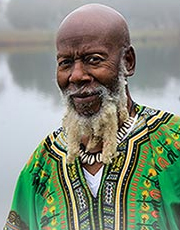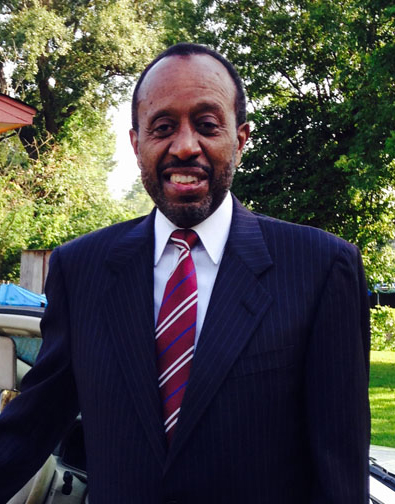Prime Example Jazz Club was one of the few remaining true contemporary jazz clubs in New Orleans. Its owner was pharmacist-turned-club-owner Julius Kimbrough, Sr., long a champion of New Orleans jazz artists. Kimbrough recently decided to close the bar and restaurant at 1909 N. Broad because of his age, and unfortunately, due to Covid-19. Pianist Jesse McBride was an acolyte and preserver of the work of the late, great saxophonist, composer, record label owner, performer, arranger, and educator extraordinaire Harold Battiste, Jr., who produced The
Silverbook (an immaculately prepared and annotated collection of some of the best New Orleans’ compositions from the second half of the first century of jazz, plus biographies and numerous photographs, a listening and reading list, as well as insights on structure and intent of the compositions). Mr. Battiste’s vision for the book was that it be an important resource for the next generation of artists, and he named the band that served as a training ground for young musicians, whom he mentored, the “Next Generation” in tribute to Battiste’s vision. Here, McBride—jazz pianist, composer and educator—reminisces about another of New Orleans’ jazz icons that are passing into the “ain’t dere no more” zone.
I met Julius Kimbrough in the late 90’s as the owner of the Showcase [Lounge]. He was nice and very accommodating to the musicians (even to a green 19-year-old from Houston). I think I was playing with Wess Anderson’s quartet. The experience was memorable and even though I didn’t see Julius that often it stuck in my mind how hip he was. Around 2013 I started hearing that he was having sporadic events at Prime Example. I ended up taking a gig with Geoff Clapp there and he said a piano was there also. I was sold!! After the gig I asked Julius if I could take an off night (Wednesday) and have the Next Generation do a few sets. He graciously said yes and we began a five-year weekly residency where hundreds of young kats would participate in the band and late-night jam sessions. A lot of tough love was administered and many dues were paid on that bandstand. An entire new generation of young kats were introduced to New Orleans modern Black American Music from the Silverbook. My mentor Harold Battiste would have his health care provider bring him to Prime every week until he was physically unable… he told me it was the highlight of his week. Nicholas Payton would come by and play every instrument on the stage. Many times, not even bringing his horn. Davell Crawford and Christian Scott Atunde Adjuah would come and hang and choose musicians from Next Generation to join their bands. During Jazz Fest Julius had music every night and was by far the best off-site music in the city for a number of years. When young musicians couldn’t get a straight-ahead gig anywhere in New Orleans, Julius would give them opportunities. Joe Dyson, Jr., Max Moran, Conun Papas, John Michael Bradford, Brian Richburg, Amina M. Scott…the list goes on and on.
Educator/ saxophonist Khari Allen Lee says “‘Thank you, Julius Kimbrough. The city of New Orleans, her community or musicians and culture bearers, and the pilgrims from near and far will be much, much poorer without the sanctuary of soulfulness we called the Prime Example.’”
Intellectualist /trumpeter Jelani Bauman remembers “The Prime Example was much more than a local music venue. It was an incubator, a community hub, an establishment that created a space for very unique instances of intersectionality. It also offered young musicians a setting to hone their craft and often provided a predominantly Black American audience to experience and reciprocate the vibrations of the music back to the bandstand. Without question, those vibrations will be echoing through the world for years to come. #BAM”
Creator of BAM / savior of archaic pop Nicholas Payton laments, “Of all the clubs I’ve played around the world, during my 30-plus year career, the Prime Example was my absolute favorite. It’s one of the last that represented how this music started, in Black neighborhood haunts, owned by Black people who embraced Black culture. It’s one of the few clubs where the owner wasn’t in it for the money. Julius Kimbrough was in it because he loved the music. These are the places where young kats really learn the foundation of black music, because Black people will let you know if it’s happening or not. I’ve been rockin’ with Julius since he had the Showcase Lounge in the ‘90s, in all its incarnations. He’ll be back, should he choose, but y’all don’t deserve him.”
While I’m deeply saddened to see Prime close its doors, I can honestly feel in my heart I never took it for granted! Sadly, much of New Orleans did and that seems to be the history of this city. The people like Julius who do it the right way and for the right reasons are neglected and underappreciated. New Orleans even currently is dealing with thieves masking as culture bearers instead of supporting artists and venues who genuinely have the city’s best interests at heart. Harold Battiste told me on many occasions it’s the reason greatness leaves New Orleans. Greatness is not appreciated here unless you can shake yo’ ass to it and not have to pay to support its existence. In these sobering times in this city’s / humanities’ history it’s imperative that we reconsider what is important, who is important so on the other side of this pandemic we assign proper value to places like Prime and people like Julius Kimbrough.






